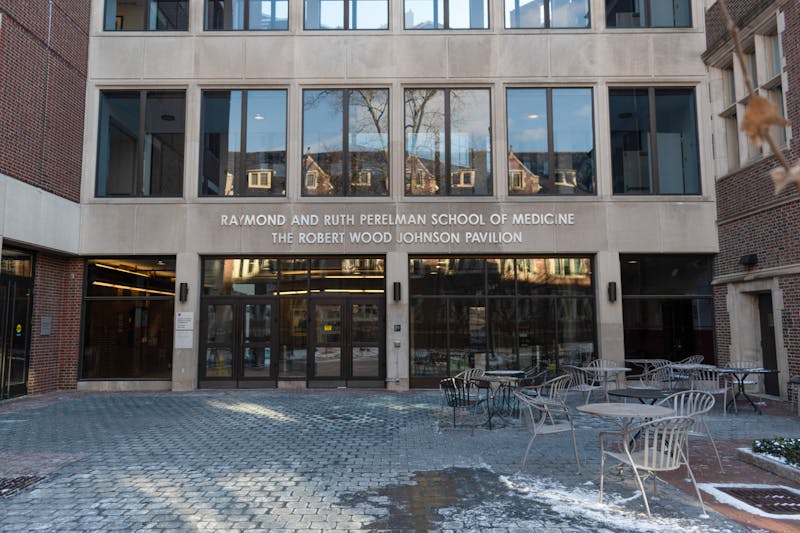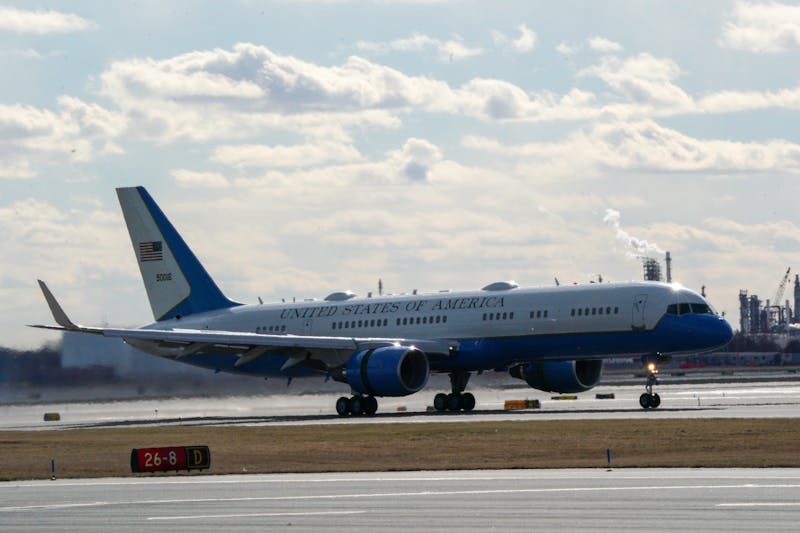
Penn's campus remains a home away from home for many students.
Credit: Kylie CooperWhen I signed my lease for the 2019-2020 school year, the fact that my apartment was only 300 square feet, didn’t have a washer or dryer in the unit or the building, and came with a small refrigerator that doesn’t even open all the way due to a poor floor design didn’t really phase me. I take early classes, hate doing my schoolwork at the desk I use as a bookshelf in my apartment, and work 20 hours a week as a work-study student. I often leave my home at 7 a.m. and don’t come back until 8 p.m that evening. But then COVID-19 changed everything.
This small apartment on 40th and Locust streets is my new permanent home. When Penn students were notified via an email from President Amy Gutmann that all on-campus students were expected to move out by March 15, I felt lucky to not need to hurriedly pack my life away. I just needed to stay put. However, if you, like me, are currently living in an off-campus apartment or are one of the few students permitted to remain on Penn’s campus, I understand that this can come with some complicated emotions as well.
I know I am not alone in the fact that the COVID-19 pandemic has completely altered my way of life. I also recognize that mourning a loss of routine instead of a loved one is a privilege. Being confronted with the harsh reality that you don’t have a home to turn to during a time of international upheaval and fear doesn’t feel great. This is true for international students who faced travel bans and couldn’t return to their families. This is true for low income students who couldn't afford to pay for a way home. And this is true for myself, someone whose conception of home has been confusing since leaving to go to college.
I grew up in Florida, though my parents always lived in different states. Just a month ago, my mother moved to a one bedroom apartment in Brooklyn, N.Y. My father, a man in precarious health, lives in North Carolina with my grandparents, also in precarious health. My sister lives in Los Angeles in a one bedroom apartment with two roommates. Going to any of these places would have required travel through massive airports, and risk that I didn’t think was necessary. No matter what, I would have been leaving a small space in a big city for a smaller space in a different big city. Some of us at Penn can’t go home.
So home turned out to be here; in this small apartment that I hadn’t planned on spending any time in during the school year. I know some people have worse circumstances but I’m not writing this to garner pity or contest who has it worse. I write this to prove that crises make you question concepts that were previously seen as solid: home, safety, priorities. I don’t take for granted the fact that I have a bed and a fridge with food in it, despite the fact the fridge door still doesn’t open all the way. But if you know someone on Penn’s campus who didn’t have a hometown to return to, or a family to take them in, check on them. Even though there are massive problems in the world right now, small ones still hurt. And if anything good could come out of any of this, it should be a greater sense of urgency to be empathetic and kind.

SOPHIA DUROSE is a College junior from Orlando, Fla. studying English. Her email address is sdurose@sas.upenn.edu.
The Daily Pennsylvanian is an independent, student-run newspaper. Please consider making a donation to support the coverage that shapes the University. Your generosity ensures a future of strong journalism at Penn.
Donate






